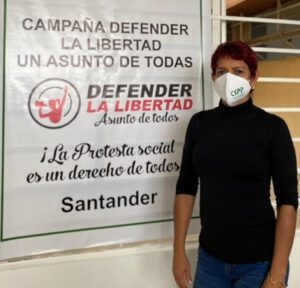The following is based on a communication written by the UN Special Rapporteur on Human Rights Defenders and other UN experts to the Government of Bahrain on 13 September 2023. The communication remained confidential for 60 days before being made public, giving the Government time to reply. The Government replied on 10 November 2023, which was recently translated and made publicly available.
The Special Rapporteur was grateful to receive a response from the Bahraini authorities, however, she was disappointed by the Government’s efforts to refute the well researched and serious concerns presented in the communication.
This is a shorter version of the original communication.
BACKGROUND
Topic: the continued detention and decline in health of human rights defender Mr. Abduljalil Al-Singace, the health condition of Mr. Abdulhadi Al-Khawaja while in detention and the ill-treatment of Mr. Naji Fateel while in prison.
Mr. Abduljalil Al-Singace was the Director and Spokesperson of the Human Rights Bureau of the Haq Movement for Civil Liberties and Democracy. He was also an active participant of the UN Human Rights Council, among other human rights mechanisms with which he engaged. He was first arrested in August 2010 on his return from a seminar on the human rights situation in Bahrain which he had attended in the United Kingdom, in the House of Lords. He was intercepted by authorities in Bahrain International Airport. Following his release without charge, Mr. Al-Singace was once again arbitrarily detained and forcibly disappeared for two months from March 2011, during which time he suffered torture during interrogation, which took place without the presence of his lawyer. He was sentenced to life imprisonment on grounds of terrorism in June 2011. Mr. Al-Singace’s disability, which had meant he required the use of crutches, has evolved to the point that he is now a regular user of a wheelchair. Mr. Al-Singace also suffers from polio and sickle-cell anaemia which leaves him with chronic pain, numbness, dizziness and breathing difficulties.
Mr. Abdulhadi Al-Khawaja, of dual Bahraini and Danish citizenship, is a human rights defender and former Protection Coordinator for the Middle East region at Front Line Defenders, as well as the former President of the Bahrain Centre for Human Rights (BCHR). He was also the winner of the 2022 Martin Ennals Award for Human Rights Defenders. As part of his work, he has advocated for political reform, namely greater participation by the Bahraini people, especially Shi’ite Muslims. He has also denounced breaches of human rights in the country and has liaised with the United Nations and other international bodies.
Mr. Naji Fateel is a human rights defender and prominent blogger from Bahrain, as well as a board member of the non-governmental organisation “Bahrain Youth Society for Human Rights” (BYSHR), Prior to his incarceration, he actively participated in marches in which he campaigned for the importance of documenting human rights violations and he urged audiences to document human rights abuses.
ALLEGATIONS
The case of Mr. Abduljalil Al-Singace:
Since 22 June 2011, Mr. Al-Singace has been serving life imprisonment, and has been detained at Ebrahim Khalil Kando Community Medical Centre under intensive police supervision. He continues to be denied the requisite medical treatment, including necessary examinations of his shoulder and head, and treatment for joints, sight, prostate, and tremors. Though an MRI scan was reportedly taken in October 2021, authorities have continuously refused to share the results of this with the human rights defender. Vital medical items, such as medical slippers, to prevent slipping in the bathroom, and a hot water bottle for pain relief, have also been denied to the human rights defender. According to reports which describe the conditions of the human rights defender’s detention, Mr. Al-Singace has been held in a state of isolation likely amounting to solitary confinement. He spends excessive time in his room and has been prohibited from going outside.
As a consequence of these conditions, it is reported that Mr. Al-Singace has not received any sun exposure as part of his detention. Moreover, while prison authorities communicated to the Red Cross that the detainee was receiving sun exposure, it has since been reported that this statement is allegedly false.
Additionally, authorities continue to limit his access to information by banning English and Arabic newspapers and have reduced the number of permitted TV channels from 14 to just four.
These restrictions have also impacted on Mr. Al-Singace’s ability to practice his religion, since this prohibition extends to TV channels that broadcast Shia religious rites and festivities. Moreover, the prison’s restrictions on books associated with the holy month of Muharram undermined Mr. Al-Singace religious practice during this spiritual time. This has infringed upon his right to freedom of religion and belief.
Moreover, it is reported that Mr. Al-Singace continued to be deprived of his handwritten notebooks, which were taken by authorities on 9 April 2021 in accordance with article 64 (5) of the implementing regulations of the Reform and Rehabilitation Institution Act (No. 18) of 2014 in Bahrain. Although authorities have handed over Dr Al-Singace’s passport to his family, they have retained possession of these research notebooks, which they claim are being kept in a safety deposit box.
On 23 June 2023, Mr. Abduljalil Al-Singace decided to suspend family visits and telephone calls in protest of the continued medical negligence and deprivation of treatment to which he has been subject.
It is reported that, while in prison, Mr. Al-Singace has been sustaining himself on multivitamin liquid supplements, tea with milk and sugar, water, and salts. Consequently, the blood sugar levels of the human rights defender are concerningly low.
On 7 August 2023, Dr Al-Singace was to be escorted to the physiotherapy space in Kanoo medical center in a wheelchair. However, he refused due to the presence of an armed guard who had been assigned to accompany him during his medical appointment.
On 9 August 2023, the authorities conceded to bring Mr. Al-Singace for physiotherapy without an armed guard. Reportedly, during the physiotherapy session, Mr. Al-Singace did not receive treatments such as ultrasound which he requires for his illnesses. It remains to be seen whether these will be provided in future sessions.
On 14 August, it was communicated that Dr Al-Singace is unable to walk or exercise properly because of his condition and his health remains unstable.
The case of Mr. Abdulhadi Al-Khawaja:
Mr. Abdulhadi Al-Khawaja was arrested in April 2011 after he peacefully protested for political reform in Bahrain. He was convicted inter alia of membership in a terrorist organization, contacting terrorist groups abroad and spreading false information for which he was sentenced to life imprisonment on 22 June 2011. He is currently serving this sentence in Jau prison.
On 12 August 2023, Mr. Al-Khawaja was reportedly taken to the prison clinic after experiencing strong heart palpitations. He was informed that his heart condition was not normal and required further treatment. He was taken by ambulance to the military hospital emergency room.
On being seen by the doctor there, Mr. Al-Khawaja was subsequently admitted to the Intensive Care Unit to receive an intravenous (IV) infusion or ‘drip’. After two hours of receiving the IV drip, the heartbeat of the human rights defender improved, and he was escorted back to his prison cell.
On 14 August, Mr. Al-Khawaja informed his family that he that he was struggling to sustain much movement, including raising his arms above his head. He told family members that he spends most of his time lying down.
The case of Mr. Naji Fateel:
On 2 May 2013, Mr. Naji Fateel was arrested at his home in Bani Jamra, before being taken to the Criminal Investigation building where he was allegedly subjected to torture of such a severe nature that he had to be hospitalised as a result. This occurred as part of a reported incommunicado detention which lasted for three days.
On 22 May 2013, Mr. Fateel was sentenced to six months in prison by the Fourth Criminal Court for the offence of “establishment of a group for the purpose of disabling the Constitution”, stipulated in article 6 of the Terrorism Law No. 58 of 2006.
On 29 September 2013, Mr. Fateel was sentenced to 15 years in prison under article 6 of the Anti-Terrorism law. He is currently serving this sentence in Jau prison.
On 29 May 2014, the Appeals Court of Bahrain upheld this 15-year sentence against the human rights defender.
It is understood that Mr. Fateel faces multiple health concerns while in prison. Reportedly, though some of these issues require urgent medical attention, treatment has been denied to the human rights defender for several years.
Mr. Fateel also experiences pain from a metal rod that was placed in his leg in 2011, following an injury he suffered when he fell off a three-storey building while documenting a protest in 2011. This rod was due to be removed ten years ago. However, the neglect of this important surgery by prison authorities has resulted in chronic inflammation in Mr. Fateel’s leg, making it difficult for him to walk.
Most recently, sometime following 9 August 2020, Mr. Fateel was allegedly transferred to solitary confinement. It is alleged that the human rights defender has been held in incommunicado detention since this time, given that he has been unable to contact his family. On 2 September 2019, the human rights defender was transferred to solitary confinement and was prohibited from receiving phone calls and visits from his family and lawyers.
This is not the first time Mr. Fateel has been subjected to solitary confinement.
CONCERNS
In the communication, we reiterate our alarm at the deteriorating health condition of Mr. Al-Singace, resulting from the deprivation of treatment and medical negligence to which he has been subject. This appears to constitute part of a broader pattern; wherein human rights defenders are subjected to detention on account of their work in defence of human rights.
We also wish to express our alarm at the rapidly deteriorating health of Mr. Al-Khawaja as well as his ill treatment while in prison. We acknowledge that the motivation for his detention is rooted in his work in defence of human rights, namely the exercise of his rights to freedom of opinion and expression, to freedom of peaceful assembly and association, and to take part in the conduct of public affairs. Furthermore, we are concerned that in addition to his deteriorating health, Mr. Al-Khawaja’s wellbeing is being negatively impacted by routine psychological pressure applied by the prison authorities. It is our concern that after spending 12 years unjustly imprisoned, Mr. Al-Khawaja is being further targeted in this way in order to push him towards a breaking point.
Moreover, we are alarmed at the ill treatment that Mr. Naji Fateel has allegedly suffered. These prison conditions undoubtedly contravene the United Nations Standard Minimum Rules for the Treatment of Prisoners (the Nelson Mandela Rules), Of particular relevance here are Rule 36 which stipulates that discipline and order shall be maintained with no more restriction than is necessary to ensure safe custody and Rule 37, which states that any form of involuntary separation from the general prison population, such as solitary confinement, isolation, segregation, special care units or restricted housing, whether as a disciplinary sanction or for the maintenance of order and security, including promulgating policies and procedures governing the use and review of, admission to and release from any form of involuntary separation, must always be subject to authorisation by law. The latter would mean the most recent alleged separation of Mr. Fateel from other prisoners, is in disregard of international law.



